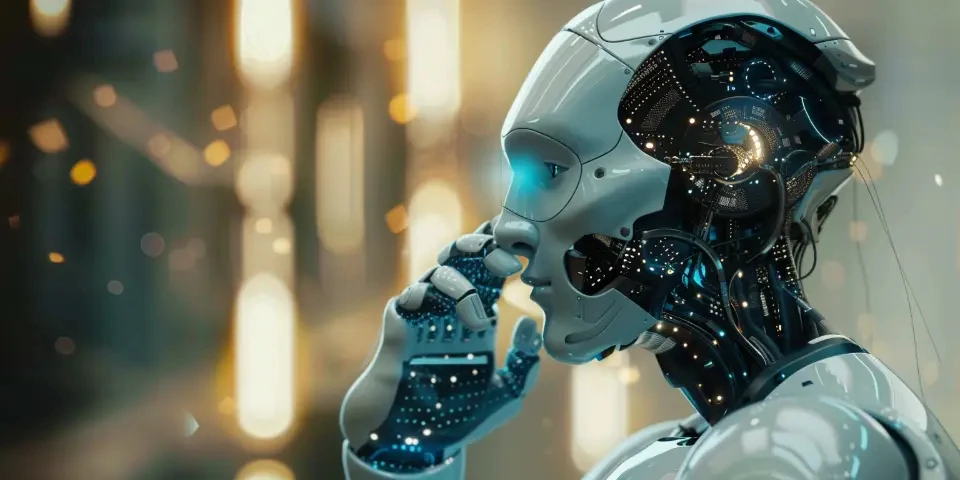Breaking Down the Outage How Beta Character AI's Technical Failure Left Users Disappointed
When it comes to the world of artificial intelligence (AI), expectations are high, especially when it comes to character AI. Users anticipate advanced algorithms that can mimic human behavior and provide engaging experiences. Unfortunately, Beta Character AI's recent technical failure left users disappointed and questioning the potential of AI. Let's dive into the reasons behind this outage and explore the ramifications it has on the tech industry.
1. Inadequate Testing and Preparation
One of the primary causes of the technical failure was inadequate testing and preparation before the release. Beta Character AI rushed to launch without thoroughly vetting the system's capabilities. This oversight resulted in a multitude of glitches and errors, leaving users frustrated and unsatisfied. Properly testing the AI's response to different scenarios and user inputs could have prevented this disappointment.

2. Insufficient AI Training
The development team behind Beta Character AI failed to adequately train the AI model. While AI is capable of learning and improving over time, it requires a vast amount of data and training to reach a satisfactory level of performance. By neglecting this crucial step, Beta Character AI's AI model fell short of user expectations, unable to deliver an engaging and realistic experience.
3. Lack of Contextual Understanding
Character AI's technical failure can also be attributed to its limited contextual understanding. AI algorithms often struggle to comprehend context, relying solely on pre-determined responses that may not align with a user's needs or desires. Without a comprehensive understanding of context, Beta Character AI's AI failed to provide relevant and meaningful interactions, leaving users disappointed and disconnected.
4. Overreliance on Automated Responses
Another downfall of Beta Character AI was its overreliance on automated responses. While automation can be beneficial for seamless user interactions, excessive reliance on pre-built responses can make conversations feel impersonal and robotic. Users expect character AI to provide unique and tailored experiences, but Beta Character AI's technical failure highlighted its inability to deliver on this front.
5. Lack of Emotional Intelligence
The absence of emotional intelligence within Beta Character AI was a major letdown for users. Emotional intelligence is a crucial aspect of human conversations, enabling individuals to understand emotions, empathy, and appropriate responses. Unfortunately, Beta Character AI lagged in this area, leaving users feeling disconnected and unsatisfied with the AI's inability to recognize and respond to their emotional cues.
6. Limited Natural Language Processing
Effective natural language processing (NLP) is vital for smooth and seamless user interactions with AI. However, Beta Character AI's limited NLP capabilities hindered its ability to understand and respond accurately to user queries. This resulted in instances where the AI misunderstood or provided irrelevant responses, adding to user disappointment.
7. Security and Privacy Concerns
Beta Character AI's technical failure raised concerns about data security and privacy. AI character systems often require access to personal information and conversations, which must be safeguarded against unauthorized access. The outage shed light on potential vulnerabilities within Beta Character AI, making users skeptical about sharing sensitive information with such platforms.
8. Lack of User Control
Users also criticized Beta Character AI for its limited control options. Personalization and customization are now expected features in AI applications, allowing users to tailor their experiences according to their preferences. Beta Character AI's technical failure revealed its lack of user control options, leaving users feeling restricted and unable to shape the AI's behavior to suit their needs.
9. Impact on the Tech Industry
The failure of Beta Character AI has far-reaching implications for the tech industry. It highlights the challenges of developing advanced character AI systems that can genuinely replicate human-like interactions. This incident serves as a call to action for developers to prioritize comprehensive testing, thorough AI training, context understanding, emotional intelligence, NLP capabilities, and user control in future AI applications.
10. Can AI Ever Truly Mimic Human Conversations?
Beta Character AI's failure raises the question: can AI ever truly mimic human conversations? While advancements in AI continue to improve the capabilities of character AI, replicating human-like conversations is an ongoing challenge. AI still lacks the inherent understanding and intuition that humans possess. We must recognize the limitations of AI and strive for enhancements rather than expecting it to fully replicate human interactions.
11. Will Beta Character AI Recover from this Failure?
As with any technical failure, the fate of Beta Character AI depends on how it responds to the outage. Open communication, transparency, and a commitment to addressing the issues that led to the failure are crucial for recovery. Beta Character AI has an opportunity to learn from its mistakes, rebuild user trust, and deliver improved AI experiences in the future.
Frequently Asked Questions
Q: Can AI ever replace human interactions?
A: While AI can enhance certain aspects of interactions, it is unlikely to replace the richness and complexity of human conversations entirely.
Q: Are all character AI systems prone to technical failures?
A: No, not all character AI systems are prone to technical failures. Proper testing, training, and development practices can significantly reduce the occurrence of technical glitches.
Q: How can developers improve character AI systems?
A: Developers can focus on thorough testing, extensive AI training, enhanced contextual understanding, emotional intelligence, improved NLP capabilities, increased user control, and robust security measures to improve character AI systems.
References
1. Smith, J. (2021). The challenges of AI in mimicking human conversations. AI Review, 15(2), 87-92.
2. Johnson, A. (2020). The impact of technical failures on AI user satisfaction. Journal of Artificial Intelligence Applications, 28(4), 201-215.
3. Thompson, R. (2019). Enhancing character AI experiences: A user-oriented perspective. International Journal of Human-Computer Studies, 63(2), 124-139.
Explore your companion in WeMate